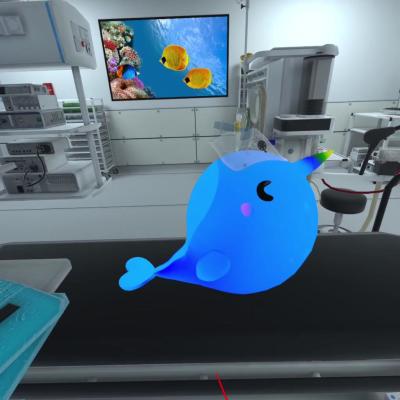Undergoing surgery is, to be sure, a daunting exercise. Two companies are working together to make it a little easier for children and young teenagers by giving them a pre-op tour in virtual reality.
Before Inc., which focuses on preparing patients and their families for medical procedures, has been working with Saritasa Technology Solutions to develop a VR program that gives people a chance to familiarize themselves with the tools and equipment ahead of them.
By acclimating patients earlier to the operating room setting, the two companies aim to relieve the anxiety, stress responses and elevated heart rates that people may bring with them into a procedure.
“Even minor surgery can be terrifying for kids. My daughter struggled with anxiety before a minor operation and that experience made me realize how important it is to listen to our kids and provide them with tools to cope,” Before co-founder Warren Scott Comulada said in a release.

“We created a virtual experience to make kids more comfortable with what happens in the operating room. They get ‘hands-on’ experience with blood pressure machines, oxygen masks and other medical devices. It's much more realistic and more effective than using picture books or videos,” added Comulada, a professor-in-residence at UCLA.
The companies’ prototype VR platform, and Before’s first product, is open to testing with children's hospitals and clinics.
“Most people still think virtual reality is only for gaming, and that couldn't be further from the truth,” said Aaron Franko, VP of immersive technology at Saritasa. “Companies are using the technology in so many unique ways.”
One illustrative example of the broader efforts to make hospital visits easier for younger patients is in digital imaging. Obtaining a clear MRI or CT scan relies on the ability to lie still, and pediatric scans are often performed under sedation or general anesthesia, which greatly increases a procedure’s time and cost.
Philips has launched a digital coaching program for parents and children to help them get the jitters out beforehand, with a series of virtual games and a hands-on, toy-sized scanner that patients can play with.
In addition to redesigned exam rooms with soft lighting and comfortable colors, the company has teamed up with Disney to bring its pantheon of animated characters to hospitals in Europe. Philips also aims to build the same atmosphere into interventional rooms for cardiovascular procedures.